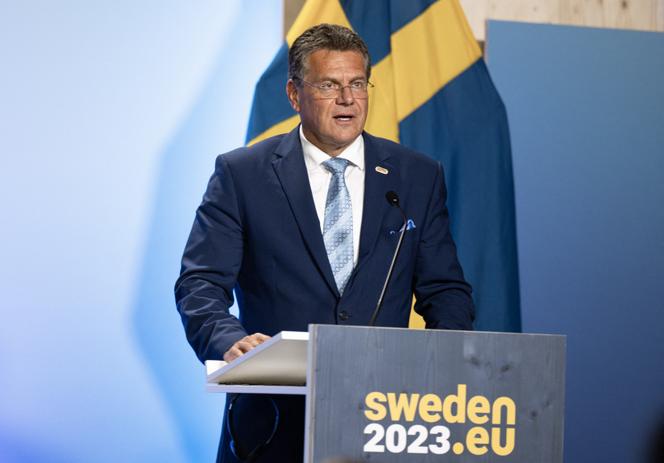


Frans Timmermans' resignation was expected, but his departure will nevertheless leave a huge void. After nine years in Brussels, the architect of the European Green Deal officially stepped down as vice president of the European Commission on Tuesday, August 22, to take part in the legislative campaign in the Netherlands. The president of the European executive, Ursula von der Leyen, also decided to entrust the vice presidency in charge of the European Green Deal, which aims to make Europe the first continent to achieve climate neutrality by 2050, to another socialist vice president, the Slovak Maros Sefcovic, until now in charge of inter-institutional relations.
The role will also give him temporary responsibility for climate action policy, pending the appointment of a new Dutch member of the Commission. Depending on the speed of the appointment procedure, Sefcovic could represent the European Union at COP28 in Dubai, United Arab Emirates, from November 30 to December 12.
Just as polyglot as his predecessor, Sefcovic is not, on the other hand, such a strong-headed defender of the environment. "He has never had any known strong commitments on environmental and climate issues," noted Pascal Canfin, Chairman (Renew, liberal) of the European Parliament’s Environment Committee.
While most of the texts making up the Green Deal have already been adopted by the Council and Parliament, such as the end of the internal combustion engine by 2035 and the reform of the carbon market, a dozen or so legislative texts remain to be completed before the end of the mandate in spring 2024. Over the past six months, however, the hardening stance of the European People’s Party – the party of the Commission President – on environmental issues has made voting on these texts increasingly difficult.
Since the spring, MEPs have been debating the "nature restoration" law in a tense atmosphere. After several extremely close votes in various parliamentary committees, and then in plenary, MEPs finally adopted the law in a watered-down form. Another complicated issue is the future regulation on the use of pesticides, which is due to be voted on by the full Parliament in November. The outcome of the vote remains uncertain, however, due to the lack of consensus between the various political groups.
Other Green Deal texts are still awaited, concerning soil protection, agricultural seeds and, above all, new genomic techniques in crops, which could give rise to a new confrontation in the European Parliament. Finally, in the fall, the Commission is due to unveil its proposal for revising the "REACH" ("Registration, Evaluation, Authorization and Restriction of Chemicals") regulation on chemicals.
You have 45.47% of this article left to read. The rest is for subscribers only.
